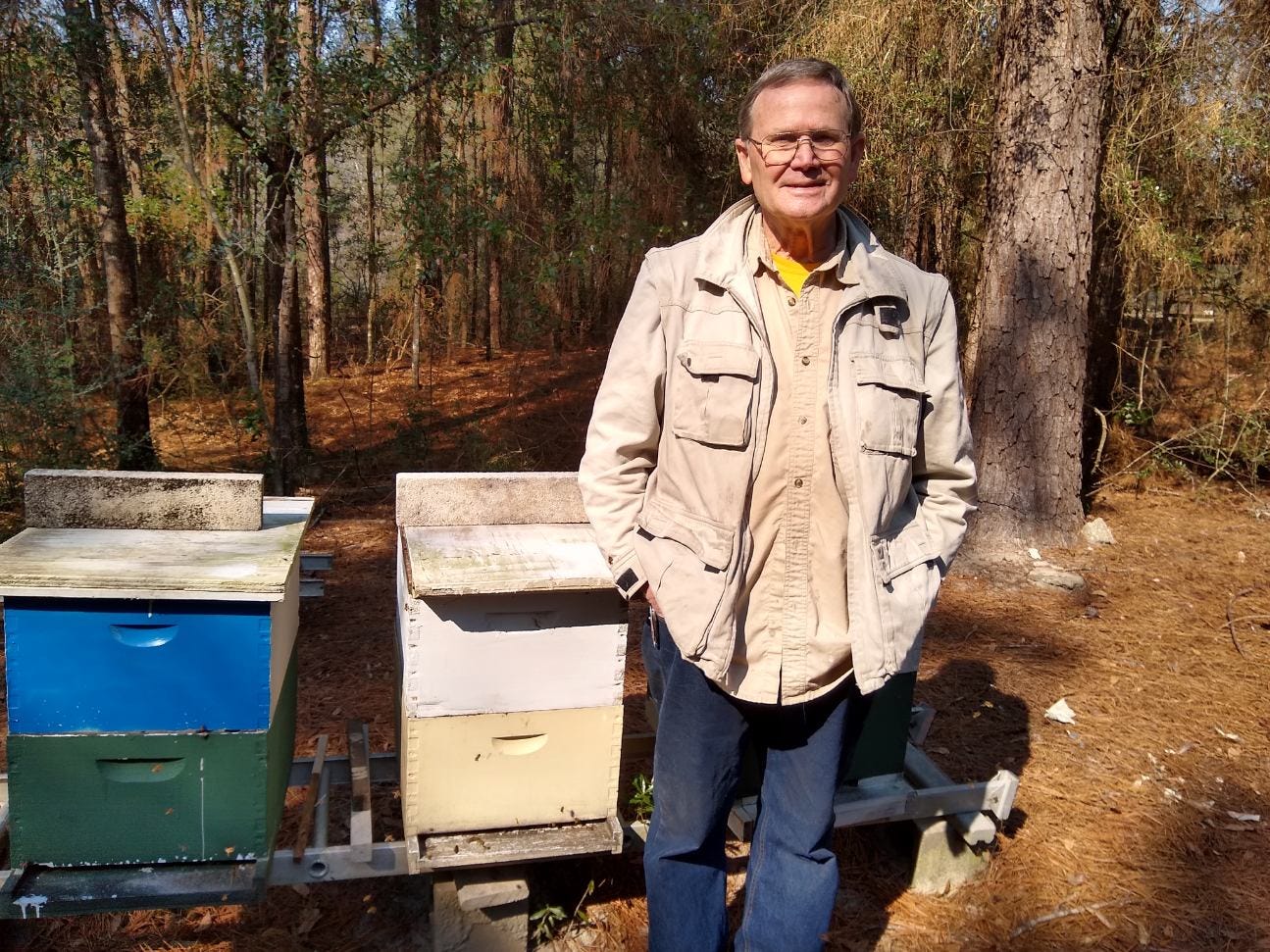As Bill Hagan raises several queen bees, he acts as their ambassador; Hagan raises the queens to help other beekeepers get their own broods started.
“This is not to make a profit for me,” Hagan said. “This is to make more bees.
“Without bees, you have no food,” he added, noting that bees are the top crop pollinators.

He keeps his brood hives and nucs (short for nucleus), apartments where his young queens are raised, on his 10 acres in the Baker area near Milligan on State Highway 90.
“It’s just a hobby for me,” the 75-year-old said, but his knowledge of bees could rival any entomology doctoral candidate. Hagan knows bee behavior, bee history, and bee by-products.

Hagan has shared that knowledge with multiple beekeepers throughout Northwest Florida, and he uses his position as president of the Tri-County Beekeepers Association to educate adults and children on the importance of bees.
“I got interested when I was a teenager,” Hagan said. “I worked for a guy that raised bees. He was my neighbor, and I’d stop and watch him.”
Hagan spent formative years in Montgomery, Alabama, but as an adult he moved his family to Okaloosa County in the early 1980s; now retired, he spends time with his bees and sharing his knowledge.

“Honey bees are not native to the U.S.,” he said, going into the history of German immigrants who brought bees to North America.
“It was 1880 before honey bees got to California,” Hagan added.
He continued with more history, saying that in 1940, a survey found about 6.4 million beekeepers in the United States. In 2005, the number was 2.6 million.
“That number hasn’t changed much since 2005,” he said.
Hagan’s own bees spent a mild, sunny Northwest Florida afternoon recently going in and out of their hives. The yellow pollen could be seen caked on the legs of the returning bees.
With the bees more interested in finding nectar and collecting pollen, Hagan had no concerns about being stung. Bees landed upon him, but they soon flew off.
“All things want to multiply,” Hagan said, noting that bees really don’t want to sting anyone. “Once they sting, they die. They don’t want that.”

With spring now here, swarms may begin appearing. Hagan’s advice is to leave them alone unless the bees take up residence in a building.
“When they swarm, they fill their stomachs with honey, and they can’t turn around to sting you,” he said.
He also offers advice for keeping bees away: Don’t wear black around a bee hive.
“That’s a danger sign (to bees) — a bear or a skunk,” Hagan said. “A bear, when he’s eating a hive, he’s eating the grubs, not the honey.”
An entire infant colony of bees can be destroyed by a bear.
Because of the bees’ vital role in crop pollination, Hagan has suggestions for people who will soon begin their spring planting: avoid the use of insecticides, especially Seven Dust, on tomatoes and ornamentals; if insecticides are needed, treat plants at night when bees are less likely to be present; treat only the bottoms of the leaves.
“Bees never go under the leaves, and never spray your flowers,” Hagan said.
Since the COVID-19 pandemic, the Tri-County Beekeepers Association has suspended its monthly meetings, but Hagan encourages people to visit the association’s website or Facebook page as a source of information: www.tri-countybeekeepersassociation.org or www.facebook.com/Tri-County-Beekeepers-Association-1403435326571222.
This article originally appeared on Crestview News Bulletin: THE BEE AMBASSADOR
